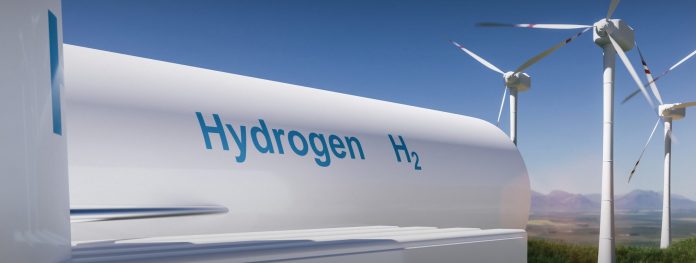- Green hydrogen must be produced efficiently to minimise the costs of production and demand for renewables.
- Conversion of electricity to hydrogen currently creates an energy loss of roughly 30% but there are technologies available today to reduce this loss.
- Efficient converters can increase the overall efficiency of green hydrogen production by roughly 1% – enough to power London for almost four years.
A new Danfoss Impact paper reveals that with hydrogen production set to consume more than half of today’s electricity demand by 2050, energy efficiency in its production is paramount. Decisive steps must be taken to scale its production for use in the hard to abate sectors, without putting an unmanageable strain on renewable energy production or financial resources.
Danfoss calls for a nuanced approach to green hydrogen, because it will play a critical role in the transition away from fossil fuels. However more focus needs to be put on how we use and produce green hydrogen in the most efficient way, lowering cost and the demand for renewables.
Crucially, hydrogen production should be recognised as a limited resource that must be strategically allocated to sectors that are otherwise challenging to decarbonise such as heavy industry and long-distance transport.
“The potential of hydrogen as a clean energy carrier is immense,” stated Mika Kulju, President, Danfoss Power Electronics and Drives. “But it must be produced efficiently to minimise costs, and we need to deploy it judiciously. To maximise its impact, which is paramount, green hydrogen should be channelled into sectors where alternatives to fossil fuels are limited, ensuring the greatest reduction in greenhouse gas emissions.”
With green hydrogen production requiring immense amounts of electricity, energy efficiency in its production is vital to its sustainability. While current green hydrogen conversion processes incur an energy loss of approximately 30%, existing technology can minimise this loss. For instance, efficient converters converting alternating current (AC) to direct current (DC) for electrolysers can increase overall production efficiency by roughly 1%. Though seemingly small, a saving of 1% of the electricity demand in 2050 for hydrogen is enough to power London for almost four years.
Hydrogen holds significant promise in many countries’ climate strategies, with substantial funding programmes underway globally. However, rapid action is necessary. To realise the goals set by the Paris Agreement, global electrolysis capacity must reach more than 550 GW by 2030. Green hydrogen production can grow massively by 2030, but cost challenges are hampering deployment.
In fact, hydrogen-dedicated renewable energy capacity is expected to grow by 45 GW between 2022 and 2028, some 35% lower than forecast a year ago due to slow progress on real-world implementation, the International Energy Agency (IEA) said in its latest Renewables report.
“Hydrogen is no silver bullet, but we need to speed up cost-efficient, green hydrogen production because there is no doubt that hydrogen will play a crucial part in the green transition,” stated Mika Kulju.
Recovering excess heat from electrolysis is another vital energy efficiency measure. Hydrogen production creates incredible amounts of excess heat. In the EU alone, about 114 TWh can be recovered already by 2030, enough to cover Germany’s current domestic heating more than two times.
Mika Kulju added: “The potential of recovering excess heat from electrolysis is so enormous that it would be a severe policy mistake not to consider it when planning future energy infrastructure. That’s also why it’s so critical to set the right regulatory and economic framework for an efficient large-scale rollout of hydrogen.”
The new Danfoss Impact paper, “Green hydrogen: A critical balancing act”, presents a balanced approach to hydrogen where efficiency and affordability play a key role.
Key takeaways:
- By 2050, hydrogen production will require more than half of today’s total electricity demand.
- Green hydrogen should be considered a limited resource and prioritised for sectors that are otherwise hard to decarbonise.
- Hydrogen currently remains concentrated in traditional applications, but a rapid upscaling in hard to abate sectors like heavy industry and long-distance transport is necessary.
- Green hydrogen must be produced efficiently by minimising the cost, energy loss, and energy demand of its production.
- Conversion of electricity to hydrogen currently creates an energy loss of roughly 30% but there are technologies available today to reduce this loss.
Download the full Danfoss Impact paper here.




